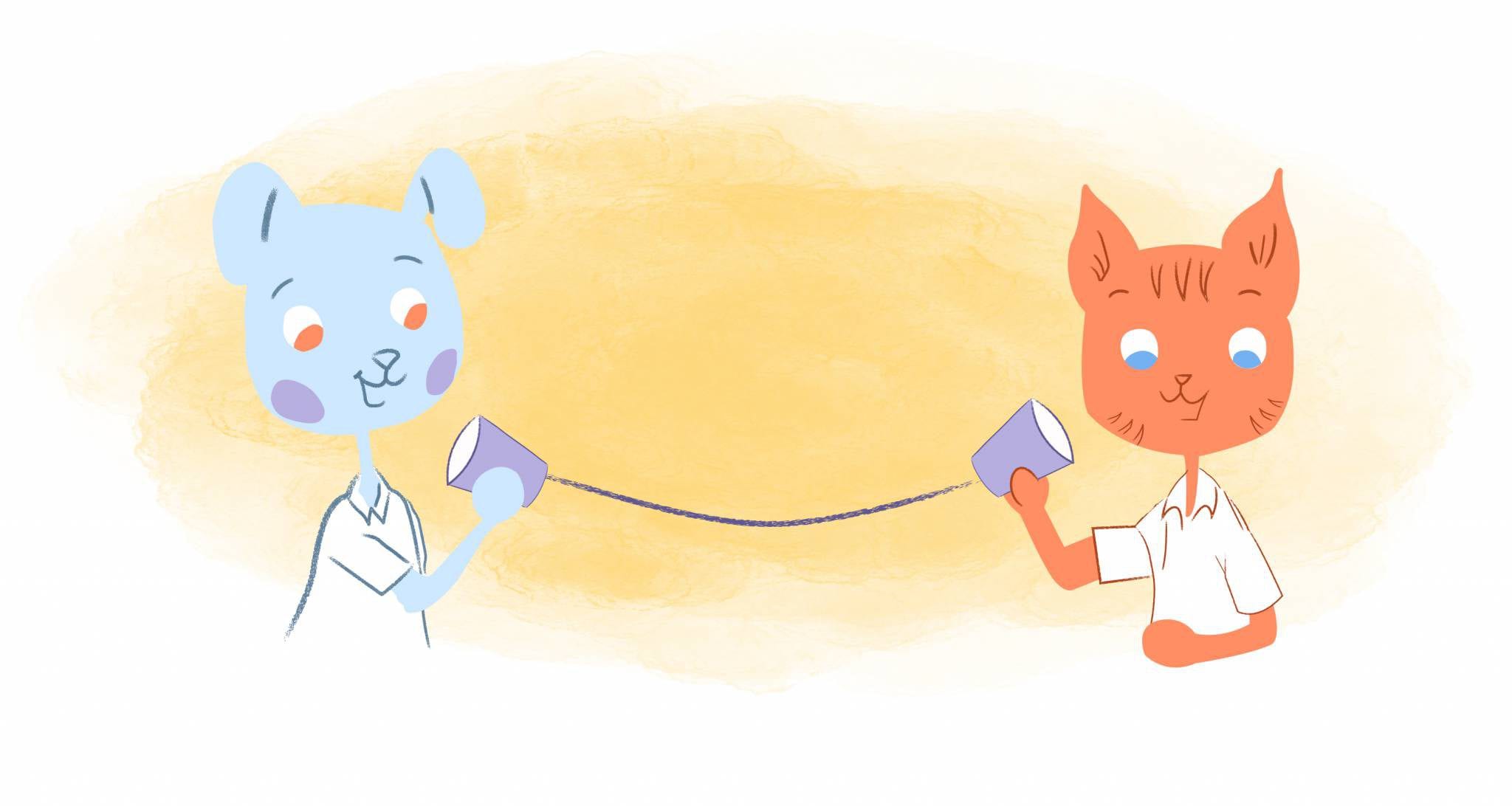

There’s no way to sugarcoat this; starting a business is no easy task. You wear multiple hats; you’re continually building clients, don’t forget networking. If you’ve built many businesses, as an entrepreneur — you understand the very real possibility of failure. But how do you determine whether working with a friend is a good idea?
Indeed, it’s a wonder that anyone would ever contemplate starting their own business. But, as Jimmy Dungan said in A League of Their Own, “It’s supposed to be hard. If it weren’t hard, everyone would do it. The hard is what makes it great.”
There are plenty of entrepreneurs who have decided to make this journey just a little bit easier — by teaming up with someone else. For example, Bill Gates had Paul Allen, and Steve Jobs had Steve Wozniak. The reason? Each partner brings something different to the table — whether that be different skill sets, lessening the workload, or having additional access to funding.
Maybe you want someone to gripe to, or someone to run your ideas past and have a second set of eyes on a project.
But, instead of approaching a stranger or acquaintance, why not just go ahead and start a business with a friend? After all, it worked for Gates and Allen and Jobs and Wozniak. There have been many famous entrepreneurial teams. Ben Cohen and Jerry Greenfield, Bill Hewlett and Dave Packard, and William S. Harley and Arthur Davidson — so why can’t it work for you and your friend?
Well, before you and your best friend get too far ahead of yourselves, you both should take a close look at the good and bad of working side-by-side with a friend.
Why You Should Start a Business With a Friend
You have a co-founder that you know and trust.
After spending years being acquainted with your friend, you know what their belief systems are, how they react to specific situations, and what their strengths and weaknesses are. You also know how to get under each other’s skin, so hopefully, you’ll avoid triggering those emotions while in the workplace.
More importantly, they are someone you trust entirely — and know that they would never intentionally do you any harm. What more do you want of a co-founder or colleague?
As Stephen Covey said, “Trust is the glue of life. It’s the most essential ingredient in effective communication. It’s the foundational principle that holds all relationships.”
You can speak freely and comfortably.
When you have a trusting and honest friendship, you can pretty much say whatever’s on your mind freely and comfortably. Sure. There will be times when they’ll say something that you don’t want to hear — or that you don’t agree with — but you know what they’re saying is genuine and sincere.
As a result, you can keep each other in-check since you’re calling each other on your BS and ultimately do what’s best for the business.
Creates a positive work environment.
Having friends at work can be extremely beneficial. 70 percent of employees believe having office friends is the “most crucial” aspect of obtaining a fulfilling work life. What’s more, office friendships lead to higher engagement and productivity and a stronger connection to the company.
You have someone to bear your burdens.
Starting a business on your own, as already mentioned above, it no easy task. It can also be incredibly lonely.
But, when you have a friend by your side, you eliminate this loneliness. More important, you have someone to share your burdens with your — whether that be financial or completing tasks on-time. And, because they’re going through everything you are, you can vent to each, celebrate accomplishments, and even throw a couple of drinks back after a particularly challenging week.
You share the same vision.
Friends tend to think alike — that’s likely why you became friends in the first place. You and your friend being able to think alike is actually a great asset for your business.
You likely have the same goals, values, and vision for your business. Thinking alike can come in useful when you’re pitching an idea or your business to a client, prospective customer, or interested investors. If you know what your partner-in-crime is going to say next, then you can set them up seamlessly.
Decisions are easier to make.
As I just mentioned, friends tend to think alike and have a similar vision and belief system. That can make it easier to agree on business decisions — even if you have a different opinion personally.
Remember, spending too much time making a decision isn’t just time-consuming, it can also drain you mentally. You want to save that energy for more important decisions.
They accept your strengths and weaknesses.
Let’s say that public speaking isn’t your thing, but you’re one heck of a coder. But, your friend is charismatic and loves speaking. Instead of them asking you to pitch your business to an investor or at a conference, they would instead ask you to make a killer website to impress others. They also wouldn’t get upset or frustrated in areas that you’re weak — and vice versa.
Simply put, you accept each for you are. As a result, you can leverage each other’s strengths and improve on your weaknesses.
More friend time.
When you work with a friend, it sometimes doesn’t feel like work at all. You get to shoot the breeze, have fun, and create memories. As a result, going to work becomes more enjoyable and relieves stress.
Why You Should Not Work With a Friend
It can be hard to distinguish between work and play.
At the same time, chatting and hanging out all day isn’t always great for productivity. Instead of focusing on work, you’re busy talking about a movie you watched over the weekend. On the flip side, when you’re outside of the office, you may start talking shop instead of just enjoying each other’s company.
No matter how much you love your business, you both need to set boundaries and separate work from play.
Also, you may let workplace difference spill over into your personal lives. For example, if you and your friend are disagreeing on the direction of the business, and it becomes heated, that could make your social life a bit awkward.
Familiarity breeds contempt.
As friends, you probably know a lot about each other. But, knowing too much of others can erode respect.
For example, if you don’t agree with the lifestyle your friend is living, you may feel that they’re someone you shouldn’t work with. Even despite the fact they’ve shown up to work every day bringing their A-game.
Who’s the boss?
Even if you’ve agreed on established roles, it can still be tough to take orders from your friend — and they probably feel the same. As a result, there may be a power struggle.
You must compartmentalize relationship issues.
Friends fight. But, you can’t let those little personal squabbles interfere with the business. No matter how ticked you are at each other — you must remain professional and discuss any disagreements calmly and rationally.
In other words, you need to learn how to compartmentalize any relationship issues you have. Just because you’re at odds personally doesn’t mean that you’re currently at odds with your business partner.
Performance issues can be awkward to address.
When an employee isn’t delivering the results you expect, the conversation isn’t complicated. You have a conversation with them, determine what the problem is, and discuss the ways that they can be more productive.
That conversation isn’t so straightforward with your friend. You may be too empathetic, or they’ll take what you’re saying too personal. It may be an awkward conversation, but it’s necessary if you want your business to thrive.
Friendships don’t always translate to business compatibility.
Sure. You and your friend may share similar values and philosophies. But, you may have completely different approaches to completing various business tasks. That can lead to conflict and when trying to build your business model and company culture.
You know the same people.
Networking is critical when starting a business. But, how much networking can you do when you and your partner know the same people?
Networking may be a greater challenge, but knowing how to find and establish new connections may not be challenging.
A failed business can lead to a failed friendship.
If you fail in this business venture — it can be the absolute worst-case scenario.
Let’s say the business fails, and you blame each other for the failure. You didn’t just lose business; you also lost your friend.
If you’re still on the fence about working with a friend, here are some questions you should ask yourself. Determinations will become more apparent with questions.
- Do you share the same business goals and values?
- Do your work habits and schedules align?
- Can you complement each other’s skills and talents?
- What roles and responsibilities should each partner take-on?
- How will you resolve conflicts?
- Are your personal lives stable?
- How long have you known each other?
Just make sure that you cover all of the topics to do with your business that you can think of. A first business venture is usually the one that friends get together in. You want the best from your first business venture. Take the time to set up all of the parameters so that you and your friend can remain great partners through thick and thin.











John Rampton
John’s goal in life is to make people’s lives much more productive. Upping productivity allows us to spend more time doing the things we enjoy most. John was recently recognized by Entrepreneur Magazine as being one of the top marketers in the World. John is co-founder of Calendar.